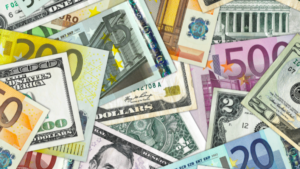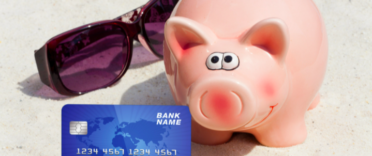 When you are travelling abroad, you will sometimes be given the option to pay in either pounds or the local currency, such as euros or dollars. It can be difficult to know which currency to opt to pay in and what exchange rate you will be given for each choice. In this article, we explain why you should always choose to pay in local currency if you want to get the best price, what the benefits are and how you can avoid additional charges.
When you are travelling abroad, you will sometimes be given the option to pay in either pounds or the local currency, such as euros or dollars. It can be difficult to know which currency to opt to pay in and what exchange rate you will be given for each choice. In this article, we explain why you should always choose to pay in local currency if you want to get the best price, what the benefits are and how you can avoid additional charges.
For more tips on spending when abroad, read our article, 'The best way to take money on holiday'.
How to choose between paying in sterling or local currency
When you are paying by debit or credit card in a shop or restaurant or withdrawing cash from an ATM abroad, you will be given the choice to pay in pounds sterling or local currency. You may be asked directly by the person taking your payment, be given it as an option on a card machine or be able to choose at the ATM terminal.
While it can be appealing to pay in sterling because you are told at the point of purchase the exact price you will pay and don't have to calculate what the exchange rate will be, you will almost certainly pay significantly more for this convenience. Conversely, by opting for local currency, you will be provided with the exchange rate from your card network - typically Visa or Mastercard - which will be close to the most competitive rate on the market.
The difference in price between paying in sterling compared with local currency could be more than 10% per transaction, ranging from a few pence to several pounds for each purchase, which soon adds up over the course of your trip.
Why is it more expensive to pay in sterling?
When you choose to pay in sterling, the exchange rate will be set by the local bank used by the retailer. This is determined by a system called Dynamic Currency Conversion, which creates an exchange rate for customers that also includes a financial incentive for the merchant. This means that, as well as the exchange rate not being as competitive as the one you would be offered by your card network for paying in local currency, you are also contributing towards a kickback the retailer gets for using the system.
Instead, by opting to pay in local currency, you engage with your card network provider's exchange rate, which targets a "perfect" exchange rate. That is to say, they don't add an extra layer of fees, which makes it a highly competitive rate.
You can find out the current exchange rate for a variety of currencies on the Mastercard website and the Visa website.
How to avoid overpaying on your holiday spending
Double check the payment is in local currency
Although you should be asked if you want to pay in local currency or pounds before payment is taken, it is a good idea to check before handing over your card. Some shops and restaurants will automatically change the bill into sterling as they think it is more convenient for the customer, or mistakenly change it into sterling when you have stated you want to pay in local currency.
If you have asked to pay in local currency, have pressed the button on the card terminal to select that payment or requested it at the ATM, but, when you look at the receipt, it has been done in sterling, you should immediately query it. If you don't get a satisfactory response, you should then contact your card issuer, who should be able to rectify the error.
Opt for a prepaid currency card
To avoid this issue, you can buy a prepaid card in the currency of your travel destination. This avoids many of the charges associated with using a debit or credit card abroad and is safer and more convenient than carrying around the equivalent amount in cash.
Avoid additional fees and charges
Although opting to pay in local currency will save you money on the exchange rate, you are likely to still be charged a fee for using your card abroad. By looking for a credit card that doesn't charge a foreign transaction fee, you can save up to 3% per transaction when abroad. There are also some cards that offer good deals on withdrawing cash from ATMs when you are abroad. For more details, check out our recommendations for the best travel credit cards.
If you don't want to take out a new credit card, having a bank account with Starling Bank or a prepaid debit card with Revolut are great alternatives. Their exchange rates are amongst the best available and Starling Bank allows you to spend abroad on its Mastercard debit card fee-free with no limits on foreign transactions or ATM withdrawals. Revolut is a prepaid Visa card, which can be used to spend abroad and in the UK fee-free. It does have restrictions on fee-free spending abroad and ATM withdrawals but these limits are reduced with its alternate subscription plans. Its worth noting that Revolut adds up to a 1% mark-up on weekends.
For more information on spending when abroad, read our article, 'The best way to take money on holiday'.
If a link has an * beside it this means that it is an affiliated link. If you go via the link, Money to the Masses may receive a small fee which helps keep Money to the Masses free to use. The following link can be used if you do not wish to help Money to the Masses -





